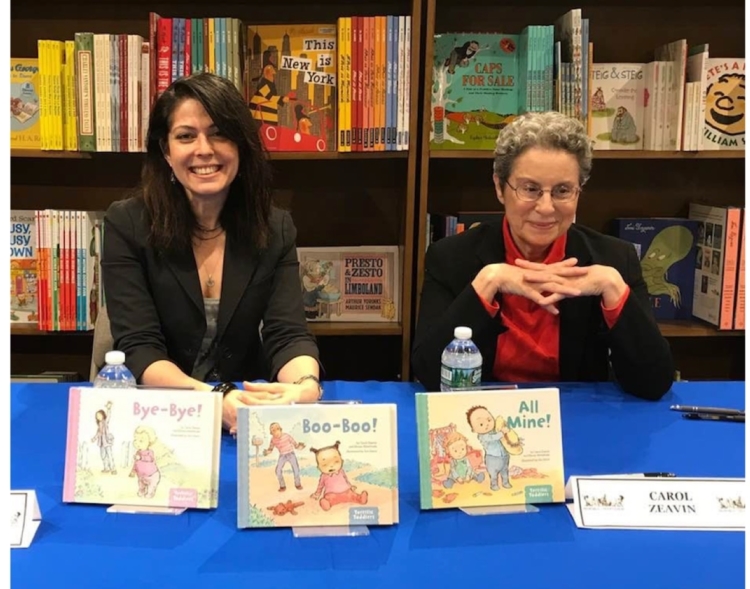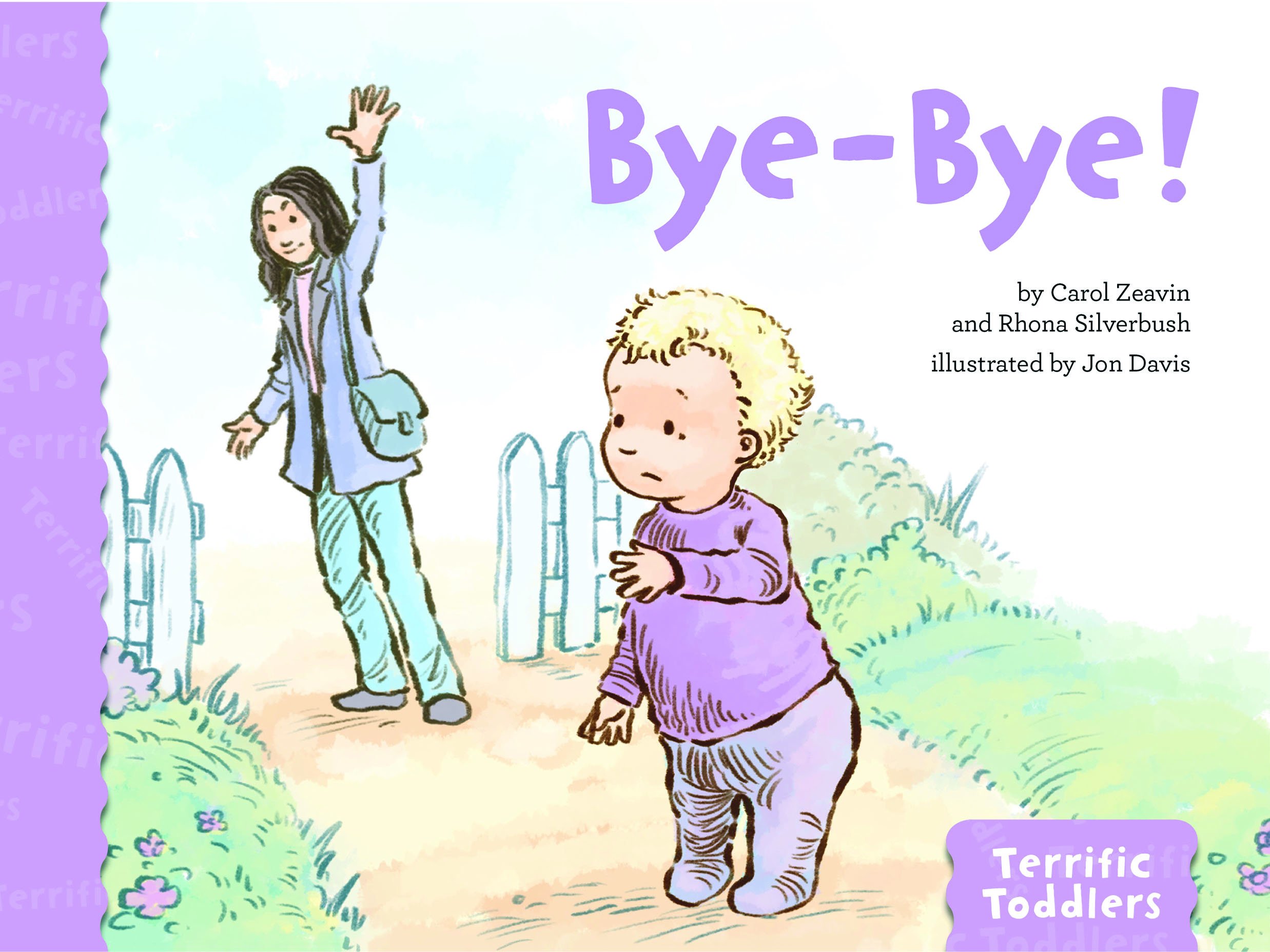
By Carol Zeavin and Rhona Silverbush
Hello, parents, grandparents, caregivers, and all who have toddlers in your lives!
We’re Rhona Silverbush and Carol Zeavin, long-term Upper West Siders and co-authors of the Terrific Toddlers series of picture books, published by Magination Press, the imprint of the American Psychological Association. The books were researched and written specifically for those in relationships with toddlers. (For more about us, see our Q&A in the West Side Rag.) We’re excited to spend the next several weeks with you, sharing some insights into toddlers and toddlerhood, one topic at a time.
We figured we’d start with one of the biggies: Separation.

You have to leave. You say “bye-bye,” and your toddler falls apart. This is typical of this age group, and unfortunately, no amount of “it’s OK – I’ll be back in an hour” will help. And here’s why.
Ranging in age from about one to three, toddlers may walk (a little) and talk (a little), but they don’t yet understand the world as we do. For starters, toddlers do not yet have a concept of time. So when you leave, as far as they know, you’re gone. Forever.
Furthermore, they’re concrete thinkers and can only understand what their senses can perceive, so when you leave, they truly do not “get” that you’ll be back — because they’re just starting to understand that you continue to exist when you’re not with them.
So seeing the situation through their eyes, you can understand why they may feel fear, sadness, grief, anger or a combo of the above.
But wait, there’s more…! Toddlers do not yet understand their own emotions. When you couple THAT with the fact that they don’t have a concept of time, they not only feel bad but also can’t imagine that they’ll ever feel otherwise. Plus, they don’t yet possess the language skills to articulate any of this!
So what can grownups do? We have addressed this issue in our picture book Bye-Bye!, in which JoJo, Ava, Kai and Jack, our book series’ four toddler protagonists, face the departures of their parents.
 While the parents in Bye-Bye! make leave-taking look natural, we acknowledge that what to do when leaving a toddler is not always intuitive. Yes, we want to “fix” our child’s feelings, but, especially with toddlers, who don’t know what a feeling is, “you’re OK” or even, “don’t be upset” won’t work. Given how toddlers understand leave-takings, the first thing to do is to validate their feelings — because their feelings are valid, especially to them! A simple “I see you’re sad/mad/scared” or even just, “…upset” will do. Importantly, doing so also gives them concrete language for the feeling, which can not only help them feel better in the moment, but also enables them to label their feelings in the future.
While the parents in Bye-Bye! make leave-taking look natural, we acknowledge that what to do when leaving a toddler is not always intuitive. Yes, we want to “fix” our child’s feelings, but, especially with toddlers, who don’t know what a feeling is, “you’re OK” or even, “don’t be upset” won’t work. Given how toddlers understand leave-takings, the first thing to do is to validate their feelings — because their feelings are valid, especially to them! A simple “I see you’re sad/mad/scared” or even just, “…upset” will do. Importantly, doing so also gives them concrete language for the feeling, which can not only help them feel better in the moment, but also enables them to label their feelings in the future.
Then you can help them gain new understandings.
Given that they don’t yet have a concept of real human time, it’s not going to help to tell them you’ll be back “in an hour.” We suggest using “Toddler Time.” In our book Bye-Bye!, JoJo’s mommy tells her she’ll be back right after JoJo goes and plays in the park. Because JoJo has done this before, she can, over time, get a concrete sense of what to expect. Kai’s daddy drops him off at preschool, and says, “I’ll be back right after you play at school.” Again, this is something Kai can hold onto to understand what is happening.
Then you can tell them something very important they can learn from bye-byes: “Mommy/Daddy always comes back.” “Ah,” your toddler may think, “Daddy said that another time…and then Daddy DID come back!” Yes, there will still be tears, but the idea will take hold with repeated experiences.
And – as you’ll surely hear from us again (parenting toddlers is challenging, we know): try to remain CALM and interact as matter-of-factly as you can — because counterintuitively (again), entering into the drama doesn’t show empathy for your toddler. Quite the opposite, it might exacerbate the situation (which doesn’t help YOU, either!).
So, to recap: 1) validate your toddlers’ emotions, 2) use toddler time, 3) remind them that you will be back, and 4) try to do these steps calmly and matter-of-factly. It will take time, but they will come to trust that you will return.
Did this column raise any questions? Anything we haven’t addressed? Send in your questions to info@westsiderag.com, and we’ll address what we can in future columns.










Very helpful.